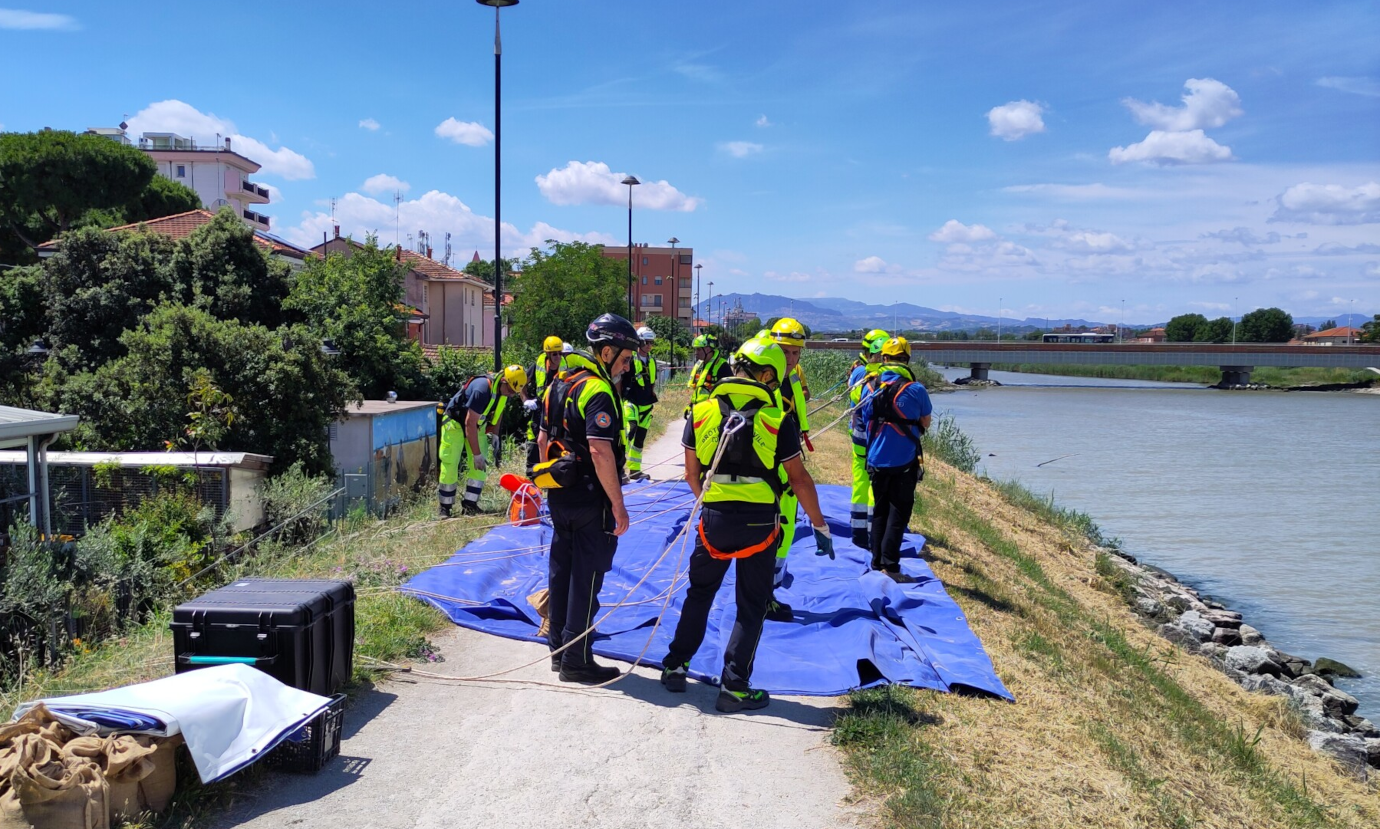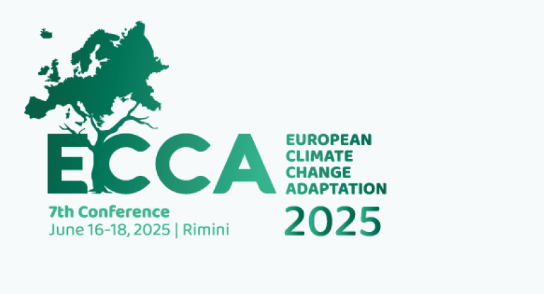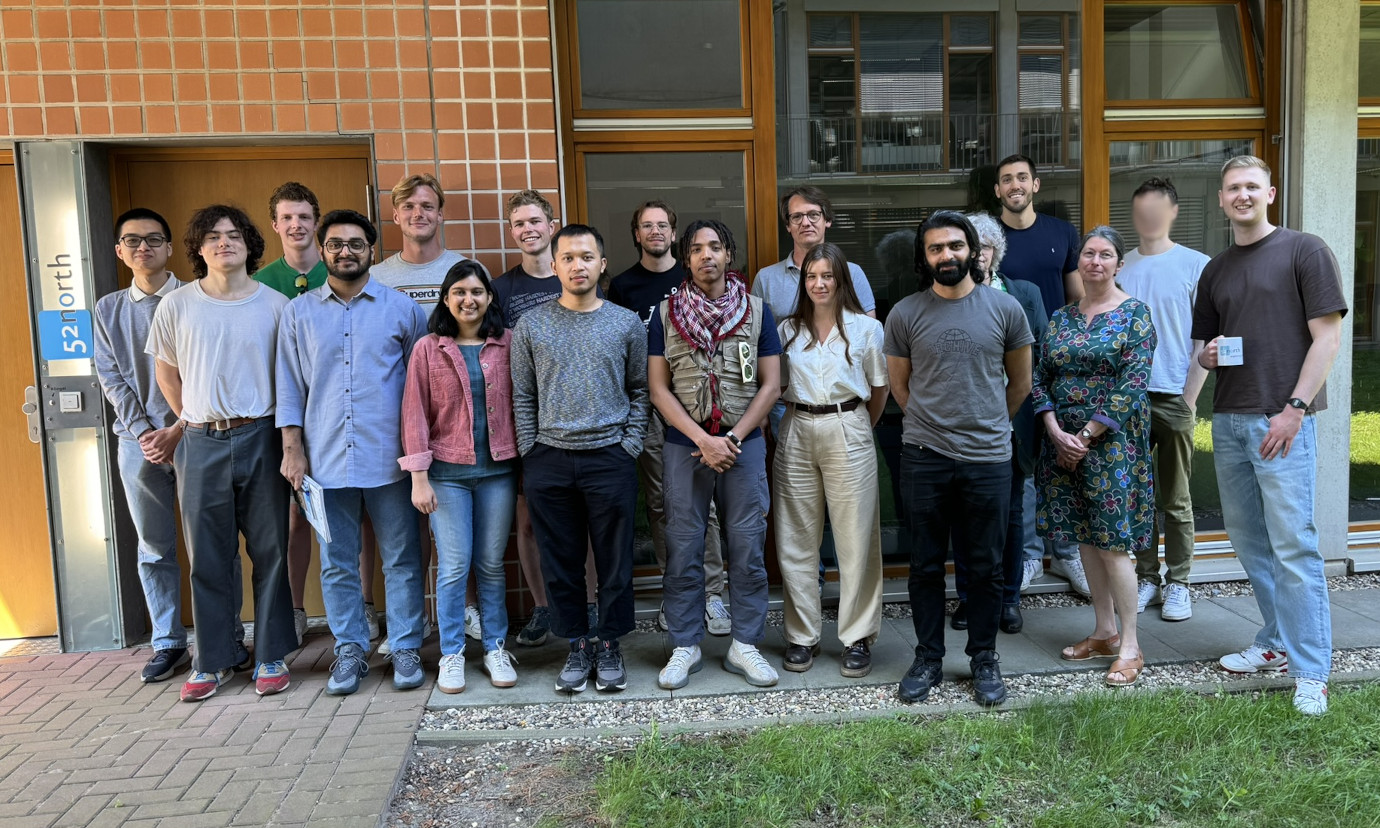If you manage disaster response or support long-term planning and need to consider climate risks, this event is for you! Come share your experiences and learn from others in a hands-on learning exchange focused on early warning, disaster preparedness, and climate adaptation, using the case of extreme flooding in Rimini, Italy. These scenarios will also be used to collaboratively explore preparedness for future events, which are exacerbated by climate change.
ECCA 2025
7th European Climate Change Adaptation Conference
Smarter, Faster, and More Systemic Adaptation
The ECCA takes place June 16 – 18, 2025 in Rimini, Italy. It serves as a vibrant platform for showcasing cutting-edge research and innovative solutions, sharing knowledge and best practices and fostering collaboration towards a climate-resilient society. It will bring together researchers, decision-makers, practitioners, and other relevant stakeholders to exchange research findings, innovative policy developments and solutions, and practical implementation experiences.
Dr. Benedikt Gräler joins consortium colleagues to present and discuss work being done on the data fabric (DIRECTED) and climate services (in I-CISK). Visit the DIRECTED booth and find out more about these innovative projects.
Tuesday, June 17, 2025
12:00 – 13:30 Porto Room
Cross-sectoral and multi-scale climate services – upscaling of mitigation and adaptation actions (I-CISK Project)
16:30 – 18:00 Marina Room
Turning scientific research into actionable solutions by tackling challenges of interoperability in DRM and CCA (DIRECTED Project)
16:00 – 18:00 Faro Room
I-CISK side event
Wednesday, June 18, 2025
9:00 – 11:00 Orologio Room
DIRECTED side event: Training for impact: Learning exchange on extreme flooding in Rimini using interoperable tools and governance frameworks
EGU General Assembly 2025
The EGU General Assembly 2025 takes place from April 27 – May 2, 2025 in Vienna, Austria. It brings together geoscientists from all over the world and covers all disciplines of the Earth, planetary, and space sciences. The EGU aims to provide a forum where scientists, especially early career researchers, can present their work and discuss their ideas with experts in all fields of geoscience. 52°North presents a portfolio of work on emerging Sensor Web technologies, Research Data Infrastructures and Data Spaces. Check out the presentations and posters throughout the week.
Tuesday, April 29, 2025
Room 1.31/32
14:25–14:35 | EGU25-17179 | On-site presentation
Advancing Disaster Risk Management and Climate Adaptation: Modular, Scalable, and Open Standards-Based Spatial Data Infrastructure for Local Action (Benedikt Gräler, Martin Pontius, Johannes Schnell, Stefano Bagli, and Paolo Mazzoli)
Thursday, May 1, 2025
Room -2.92
09:45–09:55 | EGU25-12207 | On-site presentation
The OGC API – Connected Systems: An emerging standard for interoperable sharing of observation data (Simon Jirka, Christian Autermann, and Jan Speckamp)
Posters on site | Hall X4
10:45 – 12:30 | X4.58 | EGU25-9682
The AquaINFRA research data infrastructure: Knowledge generation through FAIR open data and reproducible computational workflows (Markus Konkol, Simon Jirka, Henning Sten Hansen, Kaori Otsu, Sami Domisch, Merret Buurman, Vanessa Bremerich, Astra Labuce, Latvala Pekka, Juha Oksanen, and Björn Grüning)
10:45 – 12:30 | X4.77 | EGU25-17799
Data Spaces and geodata workflows for environmental protection (Matthes Rieke, Benjamin Proß, Simon Jikra, Sotiris Aspragkathos, Iasonas Sotiropoulos, Stamatia Rizou, and Lisa Pourcher)
Friday, May 2, 2025
Posters on site | Hall X4
10:45–12:30 | X4.154 | EGU25-5136 | ECS
Developing Central Support Services for the German National Research Data Infrastructure in Earth System Sciences through a Community-Driven Effort (Christin Henzen, Anna Brauer, Jonas Grieb, Ralf Klammer, Markus Konkol, Roland Koppe, Kemeng Liu, Johannes Munke, Tom Niers, Daniel Nüst, Tim Schäfer, and Alexander Wellmann)
52°North Welcomes Uni Twente Master Students
52°North recently opened its doors to a group of 12 international students and two staff from the University of Twente, The Netherlands. The students are involved in a two year program, in which they learn to address large-scale and complex societal challenges by combining both technical and socio-economic knowledge with a strong basis of spatial data analysis and modelling. At the end of their first year, they complete a study tour throughout Europe, visiting institutes, universities and companies active in Spatial Information Science, Technical Engineering and Spatial Planning & Governance.



